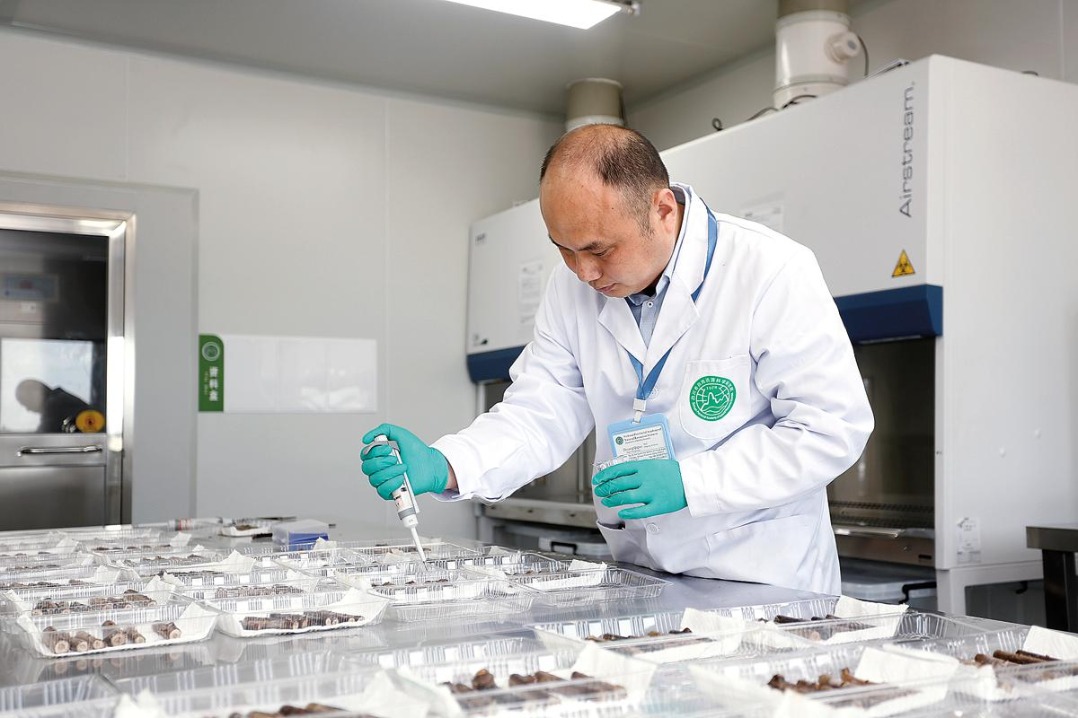Infection linked to cancer affects over quarter of urban Chinese, study finds

A bacterial infection associated with a higher risk of gastric cancer affects about 27 percent of the urban Chinese population, and around half the population is resistant to common antibiotics for treatment, according to a recent study.
Researchers from the Guangdong Provincial People's Hospital in Guangzhou, Guangdong province, and the University of Western Australia enrolled around 4,400 men and 8,500 women from 52 cities in China from March to November last year and tested them for helicobacter pylori, a stomach bacterium that is known to cause ulcers and stomach cancer in some people.
The study, published in the journal Lancet Microbe this month, put the prevalence rate of the infection in the nation's urban population at 27.08 percent, lower than the widely accepted global rate of around 50 percent.
Men registered a higher rate of nearly 29 percent compared to women, who reported a positivity rate of about 26 percent. The rate is highest among those age 30 to 49, at nearly 29 percent, according to the study.
Researchers also examined the infected cases' resistance to two important antibiotics.
They found that the drug resistance rate for clarithromycin stands at 50.8 percent, and the rate for levofloxacin is 47.2 percent.
Drug resistance is most prominent among people age 40 to 60.
"This might be related to increased antibiotic exposure with advancing age and increased susceptibility to respiratory and urinary tract infections," the study said.
It found a heightened prevalence of drug resistance among women, which it said could be driven by the frequent use of the two drugs for curbing gynecological infections.
Liao Wanqing, an academician at the Chinese Academy of Engineering specializing in medical mycology, said that the research highlights the urgency to tackle antibiotic resistance among infected patients. He was not involved in the study.
It is important to deliver treatments oriented toward drug sensitivity so as to boost success in eradicating the infection in patients, he added.
Wang Chuanxin, a professor in laboratory medicine at the Second Hospital of Shandong province, said that the rising drug resistance is linked to the widespread use of antibiotics and poor compliance with recommended regimens such as patients discontinuing their treatment on their own.
According to a white paper on helicobacter pylori released by the Chinese Center for Disease Control and Prevention, the infection's prevalence rate is around 50 percent worldwide.
In China, the rate also stands at nearly 50 percent and varies between 35 and 66 percent across different populations.
"The infection rate in rural areas is higher than that in cities, and the rate is higher among adults than in children," it said.
The white paper added that poor dietary and personal habits, low education levels, crowded residential environments and unhygienic living conditions can increase the risk of becoming infected.
- Death anniversary of Canadian surgeon Norman Bethune commemorated in China
- 1,200 punished for misusing school meal program funds
- China's strong opposition against US arm sales to Taiwan
- Yellow River Basin sees improved ecological environment
- GBA turns into dynamic growth engine for new quality productive forces
- Reproductive health education, fertility services vital to addressing declining birthrates




































